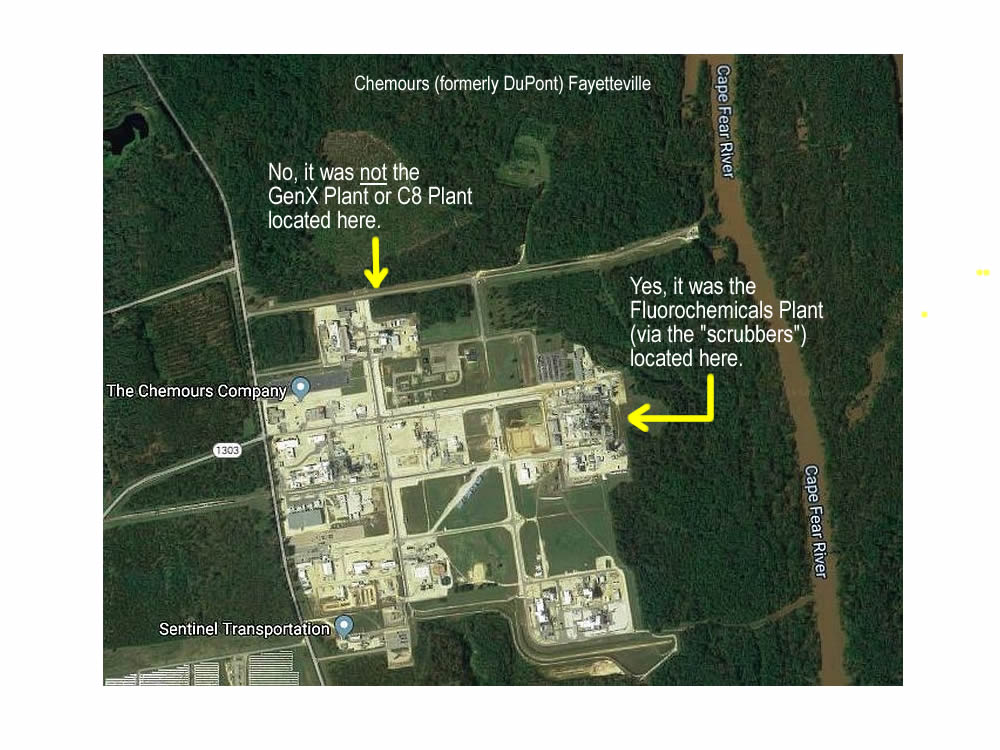

State government data and documents for GenX, PFAS chemicals from Chemours (DuPont) Fayetteville over a period of more than 15 years suggest that the North Carolina environmental agency (NC DEQ) has a long-standing pattern of secrecy, concealment, ineptitude, cover-up, and misleading the public. Publicly available documents show that the DEQ Division of Air Quality knew about the GenX chemical in DuPont's wastewater in 2005. The evidence points to deep-seated systemic problems in three major divisions of NC DEQ that seem to resist efforts at modernization and reform regardless of which political party is in power, and despite some commendable attempts at reform by various agency heads over the past two decades. The Governor, the General Assembly, and the Attorney General, partnering with citizen groups, university researchers, and technical experts, should work together to conduct an independent and transparent investigation of what went wrong at the North Carolina DEQ Divisions of Air Quality, Water Resources, and Waste Management. Transparent and bipartisan efforts to reform and modernize the NC DEQ will benefit everyone in North Carolina. After all, everyone regardless of political affiliation needs to drink water, breathe air, and eat food from the land.
Media coverage of the Chemours (DuPont) Fayetteville environmental disaster points to how partisan polarization in state government is easily "gamed" by entrenched, lifelong DEQ officials in Raleigh. When there is evidence suggesting that DEQ managers or systems have failed, agency officials can easily blame the federal government (U.S. EPA) since one of the major political parties often appears receptive to that point of view. Alternatively, and perhaps more commonly, entrenched DEQ officials in Raleigh can easily blame "insufficient staff and funding" since the other major political party often appears receptive to that argument.
In the case of Chemours (DuPont) Fayetteville and the GenX, PFAS chemicals in drinking water down the Cape Fear River, the recent history suggests that entrenched DEQ officials in Raleigh have misled both their own employees and the public by frequently aiming the blaming finger at numerous easy targets such as the U.S. EPA, the agency "staffing and funding" levels, the previous administrations, the General Assembly, the U.S. Congress, the "regulatory framework," the "emerging contaminants," or perhaps some low-level staff people or hapless agency retirees. However, the evidence and documents point to numerous DEQ system failures across three divisions (Air Quality, Water Resources, and Waste Management) over more than 15 years.
The DEQ mission statement for 2019-2021 is "providing science-based (emphasis added) environmental stewardship for the health and prosperity of all North Carolinians." However, the evidence and documents associated with Chemours (DuPont) Fayetteville point to how systemic problems in three major divisions of NC DEQ interfere with the flow of essential information needed for science-based public agency collaboration, problem-solving, transparency, and public service. The evidence points to three outdated divisions (Air, Water, and Waste) within the DEQ consisting of numerous layers of entrenched government bosses trapped in 1970s-like silos and sub-silos with insufficient oversight and reflection, resulting in a poor understanding of the important interplay between the various environmental programs for air, water, land, and waste and the impact on local communities until there are loud citizen complaints and public anger.
Surprisingly, while the NC DEQ expects environmental violators to investigate what went wrong and report how they will prevent it from happening again, the DEQ does not appear to apply that standard of professional behavior and reflection to itself. For Chemours (Dupont) Fayetteville and their discharges of PFAAs, PFAS and GenX chemcals, the documents suggest that the many layers of state government hierarchy, the outdated walls, silos and sub-silos, and the numerous entrenched, lifelong DEQ bosses meant that important information from the agency's staff and inspectors, who live in and around the impacted communities, had to move up through far too many government layers and may have allowed numerous officials in Raleigh to conceal the data and claim "plausible deniability" over a period of many years. The evidence suggests that, despite having numerous employees with strong backgrounds in environmental science and related areas of expertise, our state environmental agency in North Carolina struggles with science 101 for pollutants that move between air, water, land, and waste until there is a crisis situation and public outrage. In other words, the data and documents suggest that the North Carolina DEQ, as it is currently organized, managed, and operated is outdated and surprisingly ineffective at carrying out its mission of science-based environmental stewardship.
The public did not become aware of the GenX and PFAS chemical discharges into the Cape Fear River until investigative news reports in 2017. The evidence and documents point to astonishing failures within the three major divisions of the North Carolina DEQ over a period of many years. An independent and transparent investigation will help identify how and why the DEQ programs failed and suggest reforms needed to prevent this from ever happening again. The Governor, the General Assembly, the Attorney General, citizen oversight groups, technical experts, and academic researchers should work together to implement significant and meaningful changes to reform and modernize the NC DEQ and bring our state environmental agency into the 21st century.

